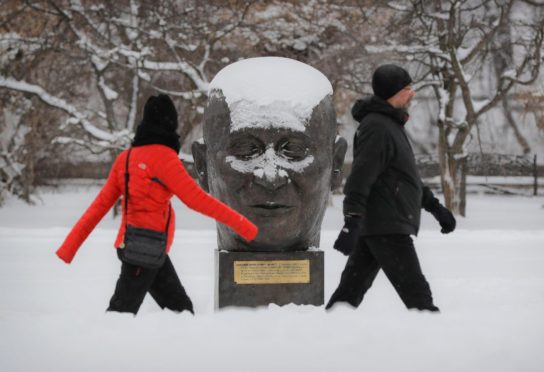My regrets about our departure from the European Union are bound up with an encounter that occurred as a result of a friend and I having set out, on a summer’s day in 1969 when I’d just turned 21, to hitch-hike through, as it turned out, no fewer than seven countries.
On our backs we carried a tent of the sort that kids might play in, a camping-gas stove and a couple of dirt-cheap sleeping bags. In our pockets were traveller’s cheques to the value of £50 apiece – this being the maximum amount of cash (not that we had more anyway) it was permissible to take out of a UK in the grip of one of its perennial economic crises.
From our Highland starting-point, lorry-driver after lorry-driver took us south to Dover where we caught a ferry to Zeebrugge in Belgium. Next came Bruges, Aachen, Cologne, Koblenz and the Rhine Gorge. There, in a little town whose name I’ve forgotten, we headed up a steeply rising street leading to one of the area’s many castles.
Our route took us past a suburban garden where an elderly man was filling a basket with cherries from a laden tree. ‘Guten Tag,’ we said. Back came a friendly reply and a query – arising no doubt from our accents and our rucksacks – as to where we came from. ‘Schottland,’ we said. Would we like some cherries, we were asked – in English now. Yes, we said.
Opposing sides
Over the next half-hour or so, seated at an outside table where cherries were supplemented by coffee and cake, we learned that our host’s English had been picked up, more than half-a-century before. He’d served in Kaiser Wilhelm’s army during the First World War, he explained. And during a British offensive on the Western Front, he’d been taken prisoner. In the camp to which he’d been consigned, he said a little ruefully, there had been no lack of opportunity to learn English.
This cherry-growing, chatty and hospitable Rhinelander, it occurred to me that long-gone afternoon, would have been in France at the same time as my paternal grandfather, James or Jimmy Hunter, for whom I’m named; each of them in uniform; each of them armed; each of them duty-bound, if the requisite opportunity presented itself, to kill the other.
And if that same Rhinelander had a son, if that son served (as is likely) in the Second World War, and if his service took him (as is by no means impossible) to Italy, he’d have been up against Allied armies whose soldiers included my father.
My Granda fought in one European war, my Dad in the next. Thanks in part to #EU60 my generation escaped that fate pic.twitter.com/fvHvXzIfXh
— Jim Hunter (@JimHunter22) March 25, 2017
My family history, in this respect, is in no way unique. During the twentieth century’s first 40 or 50 years, successive generations – in this country and in lots of others – were ordered into war. That this didn’t happen to me, that it hasn’t happened to my son, is down to a whole set of circumstances. But not the least of them is the existence of the European Union.
Little short of miraculous
When, in the later 1940s, continental politicians like Robert Schumann and Jean Monnet set out to create the European Steel and Coal Community, the organisation that was to evolve into the EU, their aim was to bind together two nations – Germany and France – that, in just 70 years, had been at war on three different occasions.
Integrating previously separate economies and easing trade between them were part of what Monnet and Schumann were about. But all of that was very much subsidiary to their central objective – this being to bring long-lasting peace to Western Europe.
Perhaps because Britain is one of the few European countries not to have been conquered and fought over in recent times, this basic point about the EU is seldom mentioned here. But in Paris, in Berlin and other capitals, it most certainly isn’t forgotten.
There’s much that’s wrong with the EU. There’s much its member states could do a whole lot better. But the EU, for all its faults, has been a major factor in ensuring that many millions of us haven’t had to follow our parents and our grandparents into war.
It was never going to be easy, on a continent where conflict’s been a fact of life for centuries, to get nearly 30 countries and peoples to collaborate for mutual benefit. It’s unsurprising that not everything’s gone right. But it’s little short of miraculous that the EU’s worked as well as it has done.
One day, I hope, we’ll again be part of this remarkable experiment.
Jim Hunter is a historian, award-winning author and Emeritus Professor of History at the University of the Highlands and Islands

